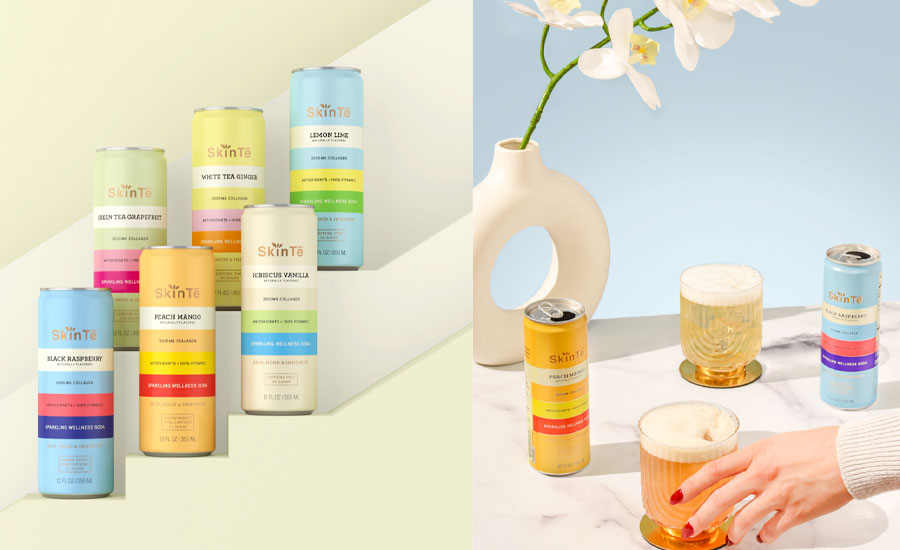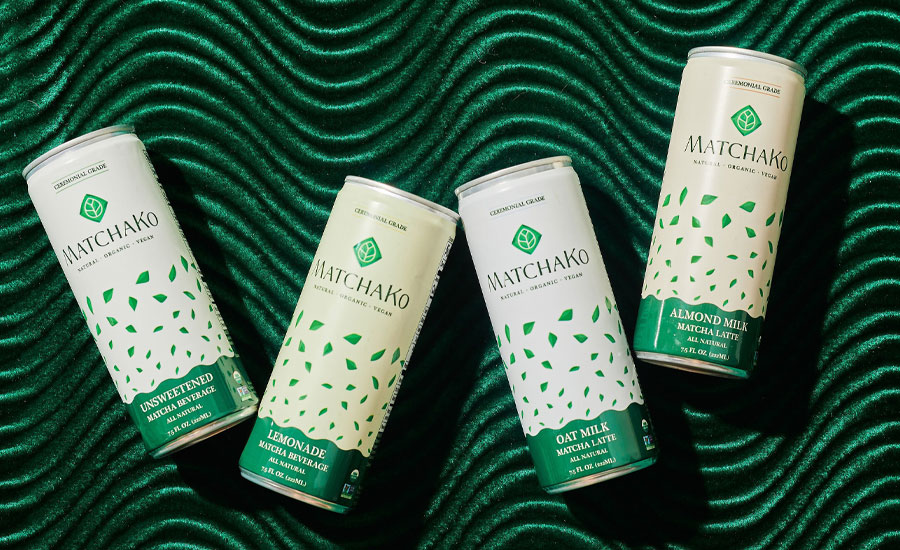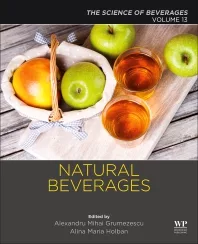R&D Feature
Sugar reduction prompts demand for natural, low-calorie sweeteners
Hybrid sweeting systems help meet formulation challenges

Image courtesy of Swoon
When it comes to the relationship between consumers and sugar, American filmmaker, visual artist and actor David Lynch perhaps best describes the dynamic when he said: “Sugar does make people happy, but then you fall off the edge after a few minutes, so I've really pretty much cut it out of my diet. Except for cupcakes. I like those.”
Within the beverage industry, with more consumers seeking reduced-sugar or sugar-free drinks, experts note that beverage-makers are turning to sweeteners such as stevia, erythritol, monk fruit and allulose to deliver products without sacrificing on taste.
“Consumers who for health or lifestyle reasons either can’t have sugar or need to limit their sugar intake can now still have the full sugar experience across all food and beverage categories,” says Rich Stewart, project leader for sweetener tech service at Westchester, Ill.-based Ingredion Inc.
With the proliferation of sugar-reduced products on the market, consumers have more control of how much sugar they want to include in their diet, he notes
Jace Yawnick, director of commercial sales at Pyure Brands, Naples, Fla., points to the role sugar reduction plays in regards to health and wellness trends.
“Increasing awareness about sugar’s role in health conditions like diabetes and obesity as well as the rising popularity of diets such as keto and paleo are steering more consumers away from sugar,” he says. “Sugar reduction has become a trend, one that we believe is here to stay.
“Natural, plant-based sweeteners like stevia and monk fruit are carrying more appeal in the U.S. and worldwide,” Yawnick continues. “Consumers now have access to a variety of great-tasting low-sugar indulgent products.”
Carla Saunders, senior marketing manager for high intensity sweeteners at Wayzata, Minn.-based Cargill, echoes similar sentiments, noting that Americans are not just talking about sugar reduction — they’re taking action.
“The U.S. Department of Health and Human Services and the U.S. Department of Agriculture’s ‘What We Eat in America’ survey finds that over the last 15 years, Americans have consumed less added sugar, with mean intakes down by 20%, from 21 to 16.9 teaspoon equivalents per day,” she says. “Nevertheless, we’re still, on average, consuming more added sugar than recommended by the 2015 Dietary Guidelines for Americans and the World Health Organization, and beverages remain a leading source for added sugars.
“This suggests that as an industry, there’s still work to be done to help consumers meet their sugar-reduction goals,” Saunders continues.
Clean label attributes bring broad appeal
With consumers taking a more proactive approach to their holistic well-being, comes the desire for beverages with clean label attributes, experts note.
“Shoppers are increasingly seeking out ingredients, including sweeteners, they consider as being ‘closer-to-nature’ with 69% of consumers saying that simple, recognizable ingredients influence their purchasing decisions,” says Sarah Diedrich, marketing director for global sweetening and texturizing at ADM, Chicago.
Moreover, clean label attributes such as “natural,” and “containing real ingredients” are appealing to consumers who consider naturally sourced sweeteners to be “better” overall for their personal wellness, as well as the planet, Diedrich says.
“Sweeteners from plant-based sources with which consumers are familiar, such as stevia, are helping meet these clean label demands while also keeping reduced-sugar beverages tasting great,” she explains. “Plus, stevia is among the top sweeteners consumers are interested in trying in their foods and beverages, especially as it has recognition for being considered a trusted ingredient from a natural source.

Image courtesy of SkinTē
“Beverage brands that incorporate more plant-based sweeteners are likely to find success with shoppers examining product labels,” Diedrich continues.
Thom King, CEO of Icon Foods, Portland Ore., notes that the trend toward clean label ingredients has been driving beverage manufacturers.
“The greatest level of success has been with a combination of sweeteners,” he says. “The prevailing blends use erythritol, allulose, stevia and monk fruit.
“If there are pronounced off-notes, these can also be addressed with sweetening modulation systems like thaumatin and rebaudioside A and the combination of these high intensity sweeteners,” King continues.
Cargill’s Saunders notes that sustainable sourcing also is factoring into a growing number of beverage manufacturers’ purchase decisions.
“It’s a priority for us, as well,” Saunders says. “The Cargill Stevia Sustainability Agricultural Standard was the industry’s first stevia standard and remains the most comprehensive, helping us ensure sustainable, ethical production for every lot we sell. Traceability is built into this system, enabling us to trace every lot of our Truvia and ViaTech stevia leaf extract back to the farmers and cooperatives who planted the crop.”
Noting ADM’s holistic approach to sugar reduction, Diedrich highlights how the company’s sweeteners address both formulation requirements through key optionality and consumer demands by meeting clean label targets.
“[O]ur approach not only helps limit added sugars, but it also replaces sweetness, rebalances flavor and rebuilds functionality to create appealing, consumer-preferred beverages,” she says. “Specifically, we’re excited to expand our stevia solutions with our latest innovation — SweetRight Stevia Edge-M — designed to offer improved sweetening, reduced bitterness and five times the solubility as compared to Rebaudioside (Reb) M.
“What’s more, SweetRight Stevia Edge-M is isolated directly from the stevia leaf, which means it’s unique from other Reb M options on the market that are produced by fermentation or bioconversion,” Diedrich continues. “As a result, it can be listed as ‘stevia leaf extract’ on product labels, helping meet consumers’ clean label desires.”
Benefits across categories
As consumer demand for natural, zero-calorie sweeteners gain popularity, experts note that sweeteners like stevia, monk fruit, erythritol and allulose have promising growth potential.
“The global sugar substitutes market is expected to grow at a CAGR of 5.6% between 2022-2027,” Pyure’s Yawnick says. “The low-calorie, naturally sweet, plant-based ingredients witnessed a growing demand in the market. Trends in low- and zero-calorie sweeteners include consumers embracing natural or organic products and avoiding artificial ingredients.
“The use of natural sweeteners continues to increase across all beverage categories such as soft drinks, energy drinks, protein shakes, coffees, teas, juices and flavored bottled waters,” he continues. “Beverages using natural, zero-calorie sweeteners are more likely to be consumed than those using artificial sweeteners.”

Image courtesy of MatchaKo
ADM’s Dierich echoes similar sentiments, noting that beverages often are the most scrutinized product when it comes to added sugar concerns, and continue to be the catalyst for broader sugar reduction efforts.
“Consumers want beverages that are either low-calorie or calorie-free, as well as sugar-free or naturally sweetened options,” she says. “Markedly, our research shows that the type of sweetener used is particularly important when choosing a new beverage.
“In fact, 57% of beverage shoppers say they review the type of sweetener used, which is higher than those who review the ingredient list itself,” Diedrich continues. “Brands are clearly getting the consumers’ message, as nearly 50% of all recent beverage category launches featuring natural sweeteners include sports drinks, carbonated soft drinks, flavored waters, kombucha and energy drinks.”
Aside from addressing consumer concerns about sugar, experts highlight how beverage categories using natural, zero-calorie sweeteners can benefit from the additional health-associated attributes these ingredients offer.
Perceived natural, zero calorie beverages are very popular in the nutritional/functional beverage space,” Ingredion’s Stewart notes. “Pre-workout drinks and beverages that claim to increase health benefits are at the forefront of the reduced and no sugar beverage market. These beverages tend to appeal to a customer base that highly values naturality.”
Noting that “gut health influences 80% of the immune system and 70% of serotonin production,” Icon Food’s King points to carbonated soft drinks (CSD), and the category’s use of natural sweeteners.
“Chemical-based sweeteners such as sucralose have been associated with degradation of the microbiome,” King says. “Now as Zevia experiences massive growth, there are more carbonated beverages such as Olipop that are seeing amazing growth.”
Chuck Nix, CEO of Silky Smooth MicroCreamery, Wilmington, Del., notes that CSDs can appeal to a broader base of consumers with the use of allulose and erythritol.
“Highly sweetened CSD’s lead all categories with their high-profile, well publicized health problems due to excess sugars and artificial sweeteners,” Nix says. “If utilizing bulk sweeteners such as allulose or erythritol, formulators [can] create custom low-intensity/high-intensity blends to balance the ideal, sugar-like flavor profile while eliminating the risk of GI issues such as bloating. SilkySweet Keto Cola utilizes such a blend with excellent results.”
Meeting formulation challenges
In an industry where taste remains king, sugar reduction can be a complicated business when it comes to beverage formulations, experts note.
“Humans evolved over thousands of years to identify and enjoy the taste of sugar in their diets,” Ingredion’s Stewart notes. “Replacing the functionality and flavor of sugar with one component can be difficult.
“When sugar is removed from a food or beverage manufacturers need to potentially replace the mouthfeel of the product and this will often dictate the use of one product to replace the sweetness and then another one to build back the viscosity in the beverage,” he continues. “Optimizing the cost and solubility of the sugar replacer is another reason to use multiple sweeteners in one system.”
Echoing similar sentiments, Icon Food’s King, points to stevia, monk fruit and allulose blends to help meet taste and mouthfeel challenges.
“Using a solo sweetener can certainly give you sweet notes, however, adding a variety of sweeteners are like instruments in a symphony of flavor experience,” King says. “Each sweetener hits the pallet differently, each sweetener has its strength and these can be accentuated in a blend, giving the finished good a broader temporal effect with a much better consumer experience.
“Off-notes are the biggest consideration, followed by mouthfeel,” King continues. “Most sugar-free beverages have a thin mouthfeel. This can be addressed with the use of fibers, which can in and of themselves add a nice prebiotic label claim while enhancing mouthfeel and viscosity. A blend of allulose, Reb M stevia and monk fruit really seems to check all the boxes with very little off-notes.”
Smaro Kokkinidou, principal food scientist at Cargill, notes how other factors, such as beverages infused with health-promoting ingredients like vitamins, minerals, botanicals and adaptogens, also are pushing formulators toward hybrid sweetening systems.
“These ingredients often come with complex flavor challenges, be it earthy and vegetative notes from proteins, bitterness from caffeine and other adaptogens or metallic tastes from minerals,” Kokkinidou says. “Sweetener blends can help manage those flavor hurdles and more effectively deliver a desirable sweetness profile and the appropriate intensity, but Cargill’s EverSweet stevia sweetener + ClearFlo natural flavor provides another approach.
“Using EverSweet’s quick sweetness onset and high sweetness potency as a foundation, EverSweet + ClearFlo goes a step further to create an even more sugar-like experience, especially at higher concentrations,” she continues. “It also helps manage off-flavors from other ingredients used in formulation, and, unlike most flavor modifiers, it enhances characterizing flavors, which can lead to cost savings.”
With beverage makers utilizing more diverse sweetener profiles, Pyure’s Yawnick points to consumers’ increased desire for natural ingredients, prompting a proliferation of plant-derived sweeteners to be used in beverages.
“As we know, each product is unique and possesses different characteristics,” Yawnick explains. “Therefore, the diversity of sweetener profiles has increased to achieve the desired flavor and sweetness profile to meet customer expectations. Pyure offers a number of these options for diverse sweetener systems focused on being organic and non-GMO certified.”
Nevertheless, the most important consideration a beverage-maker should consider is the taste profile, Yawnick says.
“Working with hybrid sweetening and selecting components of these plant-based sweetening solutions to hone in on the flavor profile is what will differentiate these beverages brands from the competition,” he explains. “Pyure has worked hard over the last few years to create sugar-substitutes that offer a taste-profile that comes extremely close to sugar.”
Regulatory requirements also are a factor to consider when using plant-based sweeteners, Yawnick says.
“Some natural zero-calorie sweeteners can have usage limits depending on the application, so it is important to ensure those parameters are correct,” he explains. “Furthermore, it is also important to consider the solubility, pH, and desired sweetness levels to ensure that the sweetener of choice is the right fit for the project.”
Still, Yawnick points back to the important role sugar reduction plays within the beverage industry.
“Beverage-makers should know that sugar is never a must when it comes to formulating,” he says. “Although sugar has been within our food systems for decades, it no longer remains the only option.”
Looking for a reprint of this article?
From high-res PDFs to custom plaques, order your copy today!









